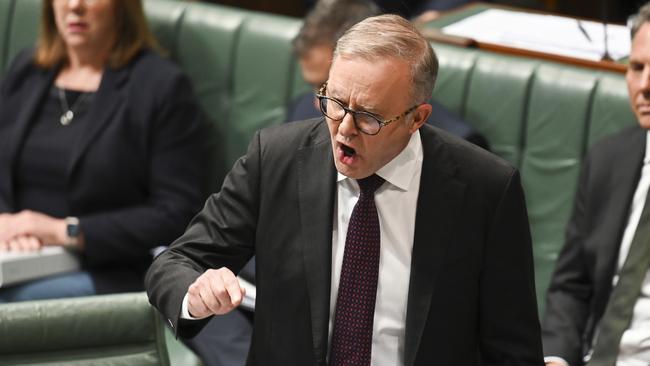High Court indefinite detention ruling shows the Albanese government must get its laws in order

It is fair to criticise the High Court for not making the reasons for its decision immediately clear. But it is also the case that once it had decided that people were unlawfully held, time was of the essence to set them free. Not to do so would only increase the potential and scope for claims of compensation. As things stand, the federal government already could be exposed to tens of millions of dollars in liabilities. Solicitor-General Stephen Donaghue KC warned during last week’s High Court ruling that overturning the policy that had seen the dozens of criminals facing deportation detained indefinitely would open the door to “undefendable damages claims”.
It is government handling of the issue that warrants the harshest criticism, first for what has been found to be the illegal, arbitrary, indefinite detention and then a failure to ensure that preparations were made for their continued legal detention once the problem became known. In making its decision, the High Court has overturned longstanding precedent regarding indefinite detention, but there has been an obvious lack of planning on the federal government’s part. Anthony Albanese and his ministers have come across as flat-footed and confused. This has allowed Peter Dutton to cast the Prime Minister as guilty of failing in his duty to work for the best interests, security and wellbeing of voters.
Mr Albanese has been caught out by his overseas schedule and faces heavy criticism for attending the Asia-Pacific Economic Co-operation summit in San Francisco with a crisis unfolding at home despite having recently met Joe Biden and Xi Jinping in person. As a former home affairs minister with a reputation for tough action, the Opposition Leader is operating on familiar territory in prosecuting the Albanese government’s failings. The fact the government will introduce legislation on Thursday to address the High Court decision confirms the folly of earlier protestations that nothing could be done until the court’s full reasons were published. Protecting the safety of the public must be the main concern and it is clear the remedy must include the involvement of the courts.
This is because the core of the High Court concern is constitutional process and the separation of powers between government and the judiciary. As Chris Merritt rightly has written, this is a core principle that must be preserved. Merritt says this case is the latest in a string of contentious rulings in which the court has struck down laws and executive decisions that were at odds with its increasingly hardline approach to the separation of powers. Earlier decisions have included restoring the Australian citizenship of Islamic State terror suspect Delil Alexander and convicted terrorist Abdul Nacer Benbrika. Both had been stripped of their citizenship without involvement by the judiciary. The principle underlying those decisions, and most likely the current case, is that the court will not permit ministers and public servants to inflict punishments on anyone – regardless of who they are or what they may have done. Punishing people is the exclusive responsibility of the judiciary. And it should surprise nobody that the court has almost certainly concluded that indefinite detention fits the definition of punishment.
This does not suggest that child rapists and others who are not entitled to remain in Australia should be allowed to walk free. The government must get its laws in order so the courts can make decisions that reflect what voters expect of their elected officials.


The Albanese government is correct to say that complying with the orders of the High Court is not optional for politicians but this does not let it off the hook for allowing a known child rapist and other criminals to walk free. The government has had plenty of time to prepare for a High Court decision that 83 people, some with histories of having committed violent crimes, be released from indefinite immigration detention because they had been incarcerated unlawfully. Earlier High Court rulings should have given a clear insight into what the decision in this case was likely to be.